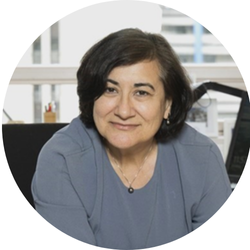
Advancing our understanding of cellular interactions is key to tackling some of the most pressing challenges in disease research. This Scientific Symposium, part of the HFSP Frontier Workshops initiative, brings together leading experts in immunology, cellular organization, virology, and cancer research to explore the complex mechanisms that govern health and disease at the cellular level.
Hosted in collaboration with A*STAR in Singapore, the symposium will feature thought-provoking discussions and case studies, highlighting cutting-edge research and fostering international collaboration in the life sciences.
VENUE: NRF, Singapore, CREATE Tower Theatrette, Level 2
DATE: Monday, 17 March 2025
SCHEDULE: 14:00-18:00 SGT
REGISTRATION: go.gov.sg/hfsp2025
FREE ATTENDANCE!
PROGRAM
14.00: Opening remarks by National Research Foundation Singapore, A*STAR and HFSP
14.20: Supporting international collaborations in Frontier Life Sciences: the HFSP Programs, by Guntram Bauer, HFSP CSO
14.50: How lymphocytes add signals to control proliferation and survival in health and disease, by Phil Hodkin, WEHI, Australia
15.20: Structural insights on the regulation of dopamine synthesis, associated diseases, and novel therapies, by Aurora Martinez, University of Bergen, Norway
15.50: Break
16.20: How a dormant, but essential, enzyme in Pseudomonas aeruginosa is activated 20,000-fold by a cell-wall precursor, by Kurt Krause, University of Otago, New Zealand
16.50: Understanding the Genetics and Biology of Cancer Disparities in People of African Ancestry, by Juliet Daniel, McMaster University, Hamilton, Canada
17.20: Final remarks
SPEAKERS
 | Phil Hodgkin, Professor Phil Hodgkin is an experimental and theoretical immunologist at The Walter and Eliza Hall Institute (WEHI), in Melbourne, Australia. He has published numerous discoveries in T cell and B cell biology that contribute to original theoretical ideas for the field. His laboratory has helped pioneer the use of cell division tracking methods and invented many novel techniques in this area. His experimental work has revealed a surprising regularity and underlying order in the control of lymphocyte proliferation and differentiation. This discovery greatly simplifies our understanding of the source of cellular heterogeneity, the coding of complex immune responses and the stepwise transformation of healthy responses to various malignancies. His laboratory is applying these experimental insights to build mathematical models to inform and improve our predictions for how the immune system will behave, how it leads to disease and how drug therapies can be optimally targeted to individuals. |
 | Aurora Martinez Professor at Department of Biomedicine, University of Bergen (UiB), Norway since 1997, where she teaches medical students. In research, she leads the Biorecognition group, with expertise in biophysics, structural and cellular biology, animal models of disease, and drug design. The group studies the connections between structure, molecular recognition, stability, and protein function in biomolecular pathways, and how their destabilization and dysfunction contribute to disease. They are currently developing therapies for genetic diseases, mainly phenylketonuria, pediatric parkinsonism, and Parkinson's disease. The group have experience in compound screening for drug discovery and is integrated into the Nor-Openscreen and EU-Openscreen consortia. Aurora Martinez has led research projects funded by the European Commission and The Research Council of Norway, among others. She has supervised 26 completed doctoral theses and is co-author of more than 190 reviewed scientific publications. She is a member of the Norwegian Academy of Science and Letters (since 2007) and has been President of the Norwegian Biochemical Society (2016-2018). |
 | Kurt L. Krause Professor Kurt Krause is a structural biologist and a clinical specialist in infectious diseases with a particular interest in the pathogenicity of infectious agents such as antibiotic-resistant bacteria, mycobacteria and respiratory viruses. In 2006, he joined the Department of Biochemistry at the University of Otago, New Zealand. From 2006-2017 he served as the founding director of the Webster Centre for Infectious Disease and from 2010-2015 he served as the Head of the Department of Biochemistry, all at Otago. He is the Convenor of the New Zealand National Committee for Crystallography. He is on the Council of the Asian Crystallography Association, the Asia Pacific Protein Association and the Human Frontier Science Program. He is a Principal Investigator of the Maurice Wilkins Centre of Excellence and is a Fellow in the Infectious Diseases Society of America. |
 | Juliet Daniel Juliet Daniel is a Professor in the Department of Biology and the Associate Dean Research & External Relations in the Faculty of Science, at McMaster University. She is also an associate member of the Department of Oncology and Francombe Family Digestive Health Research Institute at McMaster. Daniel’s research expertise is cell-cell adhesion and signaling through transcription factors, and how their malfunction contributes to cancer. Daniel’s research led to her discovery and naming of a new gene “Kaiso”, coined from the popular Caribbean music “calypso”. Kaiso regulates the expression of genes that control cell proliferation and adhesion; consequently Kaiso’s malfunction in various human tumors (e.g. breast, colon, prostate) contributes to tumor progression and spread. |


































